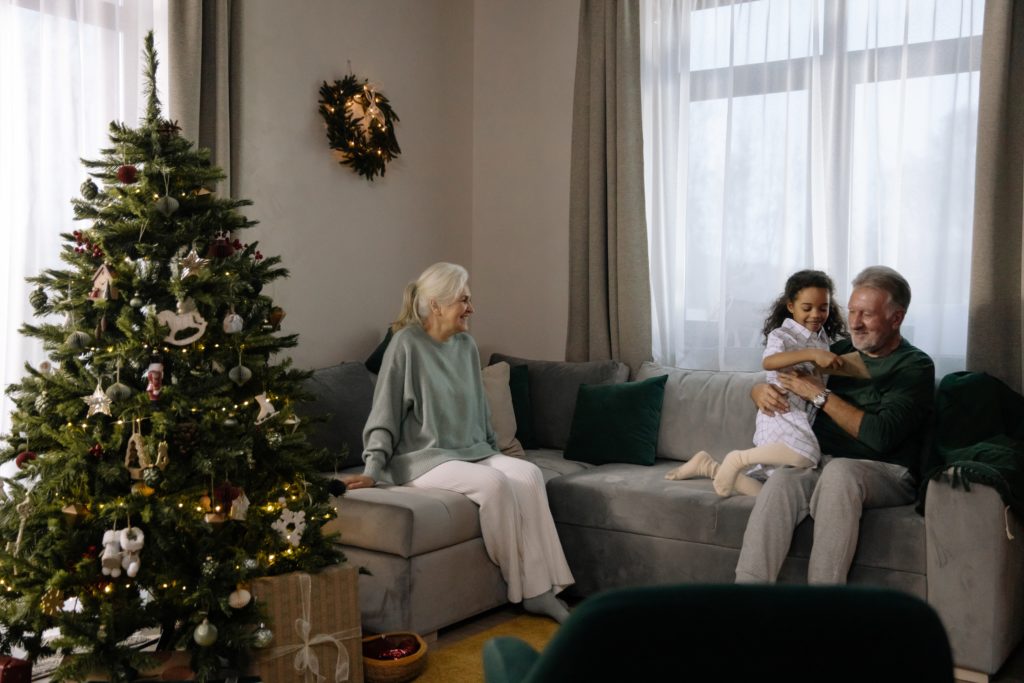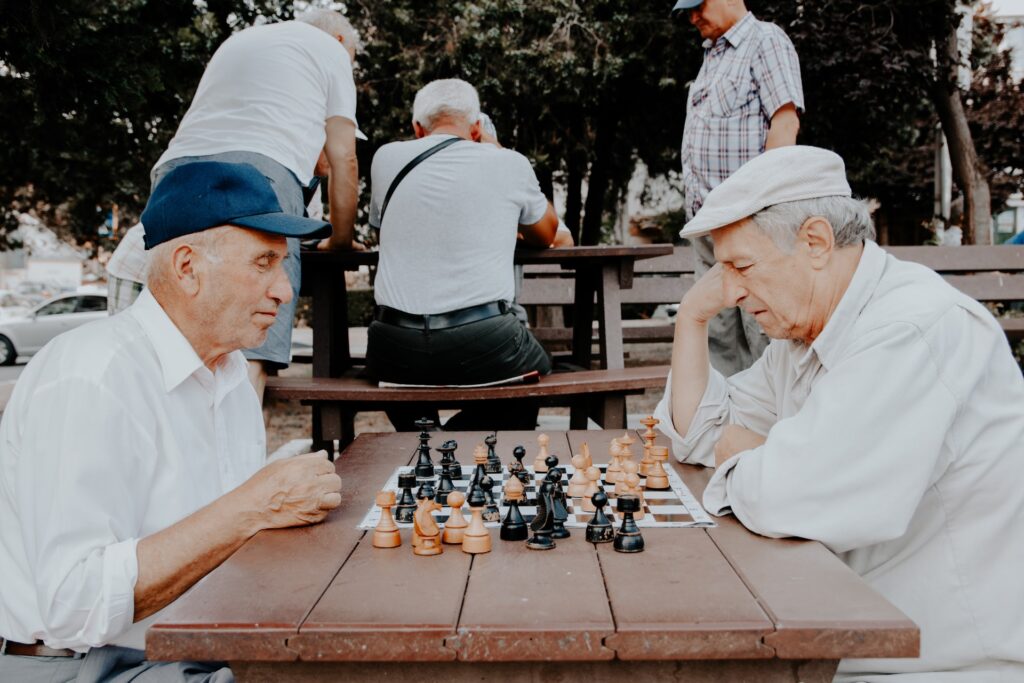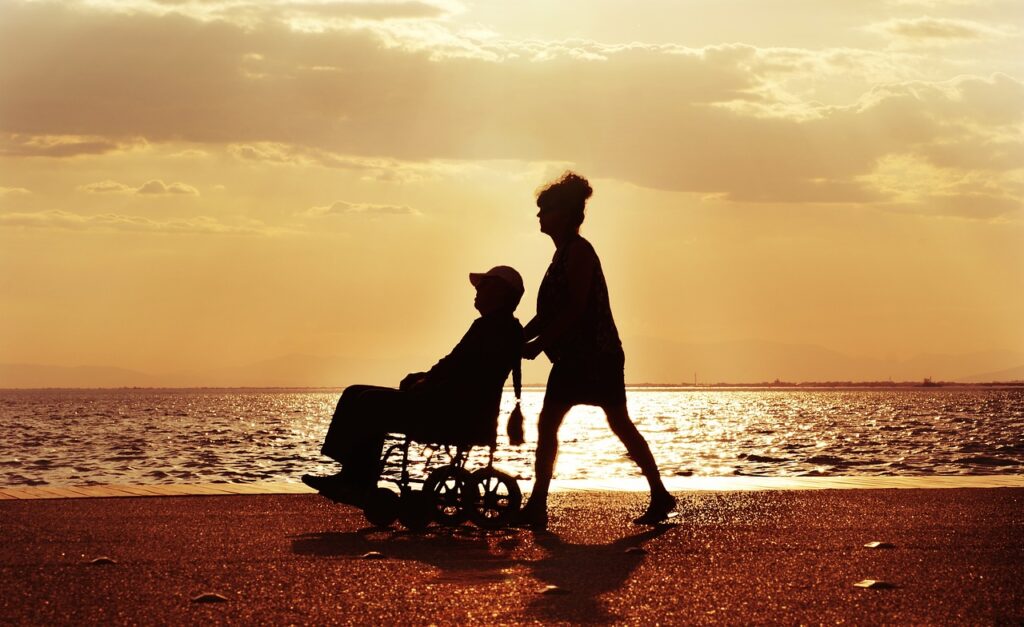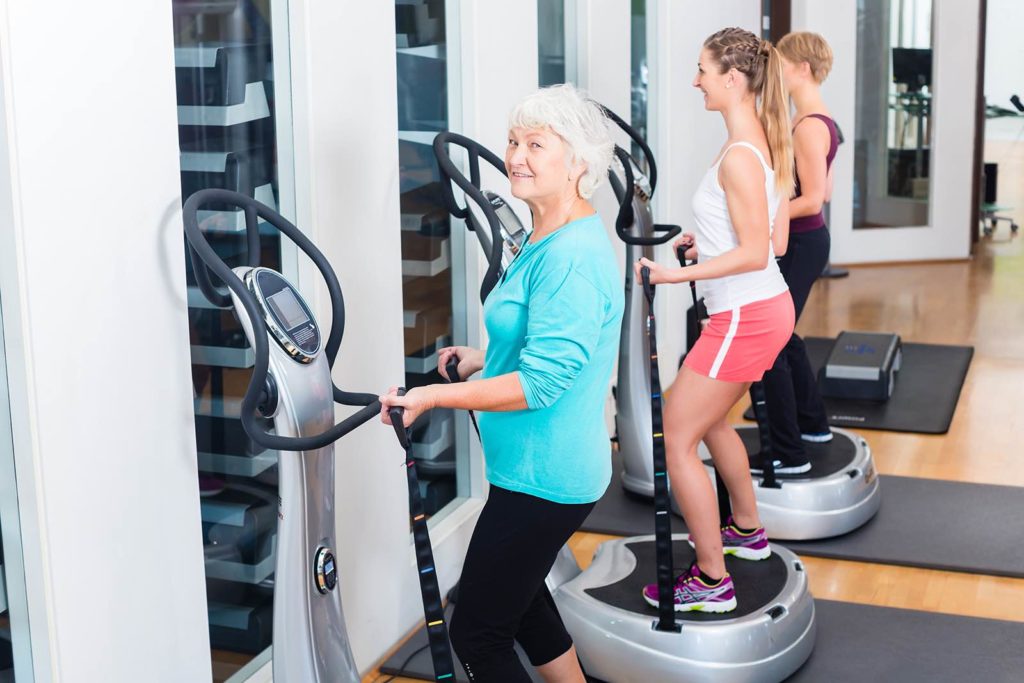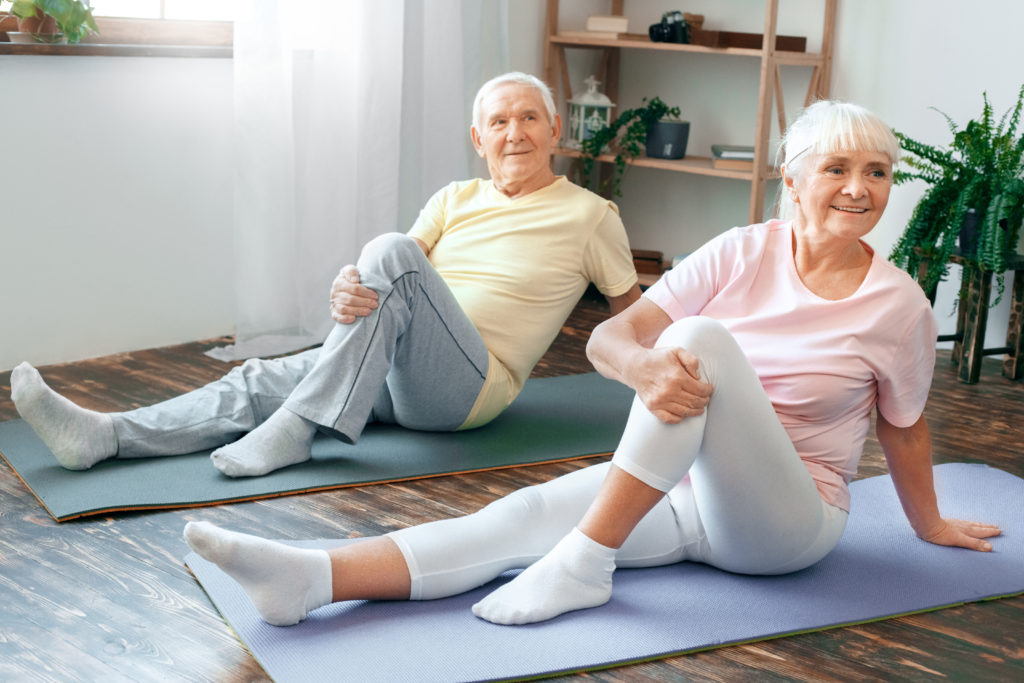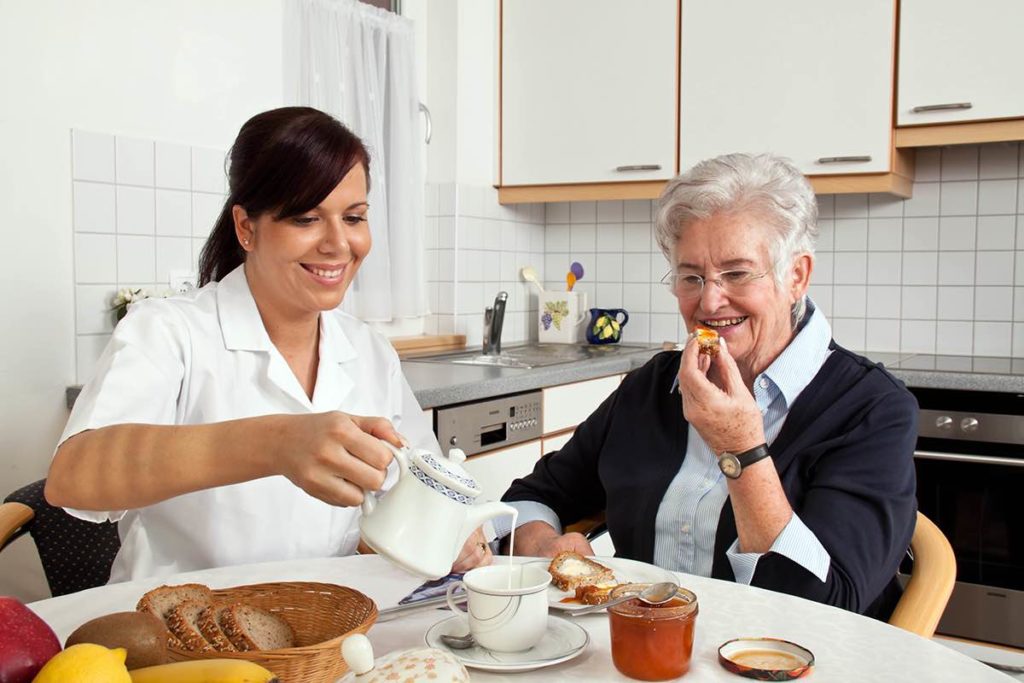Uncategorized
How to Keep Your Health in Check This Holiday Season
December 5, 2022
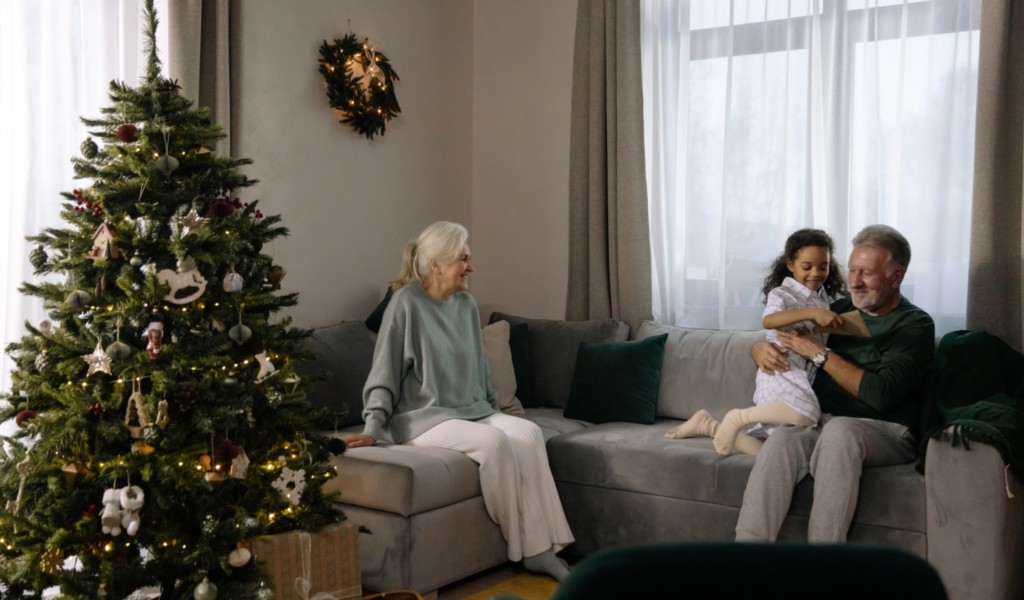
The holidays are known for taking a toll on our bodies. Between the chilly temperatures, onset of flu season and the overabundance of sweet treats at every turn, it’s easy for physical, emotional, and mental health to fall to the wayside.
As the holidays kick into full gear, it’s important to prioritize your health so you can start 2023 off in health and happiness. Below are our top three tips to help you stay well this Holiday Season.
- Stay current on your exams, screenings and vaccinations. Ask your doctor what exams and vaccinations you need and when to get them.
- Manage stress. Support your mental health through exercises that help relieve anxiety and worry, such as mindfulness, meditation and journaling.
- Eat well and stay active. It’s easy to overindulge during the holidays, but try to limit unhealthy foods as best you can. Eating nutrient-rich foods can help you manage energy levels and boost your mood.
The holidays are a perfect time of year to enjoy time with friends and loved ones. But they are also a great time to celebrate and protect your well-being and improve your health.
Post-Surgery Home Care Tips to Promote a Smoother Recovery
April 19, 2022

Postoperative care is the care you receive after a surgical procedure. The type of postoperative care you need depends on the type of surgery you have, as well as your health history. It often includes pain management and wound care.
Postoperative care begins immediately after surgery. It lasts for the duration of your hospital stay and may continue after you’ve been discharged (Healthline).
Around 15 million Americans have a surgery every year. If you’re scheduled to undergo surgery, you’ll want to take the steps to prepare for it to help ensure you have a successful outcome. There are also steps you can take after surgery to heal faster and return to the things you love.
No matter what age you are, recovering at home after a surgery can be uncomfortable and sometimes dangerous. Patients are often tired, stressed an in pain after a surgery and usually require help doing simple tasks, such as walking, eating or bathing.
Here are a few crucial post-surgery considerations to help you into a smooth recovery
Stay Ahead of the Pain
Problems with pain management can affect a patient’s ability to recover. Not to mention, it also makes the recovery process more uncomfortable than it needs to be. Staying ahead of the pain, getting enough sleep, and managing your stress levels will help you manage your pain.
Be aware of nausea and excessive bruising
Medications and anesthesia have adverse effects for most patients. If you or a loved one have trouble, it may be normal. Nausea isn’t alarming, but if it persists, it may stop you from completing daily activities or feeling comfortable.
Blood tends leak and spread to other places under the skin. It’s not uncommon to find bruising around the surgery site. While bruising won’t hinder healing, it can slow it down. As always, if you’re concerned, contact your doctor.
Maintain good nutrition
Drink lots of water and eat a healthy diet after surgery to help promote healing and minimize complications. Eat as many fruits and vegetables as you can, as well as whole grains and lean proteins. Eat regularly to keep up your strength.
Get lots of sleep
When you sleep, there are less demands made on your heart. Your blood pressure will drop, and your heart will be able to take a break. Sleep also causes the body to release hormones that can slow breathing and relax other muscles in the body. This process can reduce inflammation and assist with healing (Chicago Tribune).
Get in some steps
If you’re able, try to get up and walk at least a few times per day, even if it’s just a short walk. Don’t hesitate to seek for assistance or help. A family member, friend, or registered nurse.
Walking can help prevent serious complications such as blood clots, and it helps get your bowels moving, which is helpful since anesthesia can cause constipation.
Give your body time to heal
After surgery, you may need to recover for two to three weeks or longer, depending on the procedure. When you begin to feel better, don’t rush back to your old activities at the same pace that you used to.
Consider at home Post-Operative Care
Just Like Family Home Care refers nurses who work directly with you in your home or temporary accommodation setting to provide you with superior care. They provide daily drop-in care, day or night care, as well as extended hours and after-hours home care.
Nursing care includes administering medications, helping with drain tubes, and wound care. They can also assist with activities of daily living such as bathing, dressing, preparing meals, light housekeeping, laundry, and general household management.
While you are receiving your services, your nurse can transport you to your follow-up appointment if it is scheduled during that time. Our staff will be happy to arrange transportation to or from your surgery and/or post-operative appointments if needed. Learn more about post-operative care here.
Contact us today to schedule a free consultation!
Early Signs and Symptoms of Alzheimer’s Disease
March 22, 2022
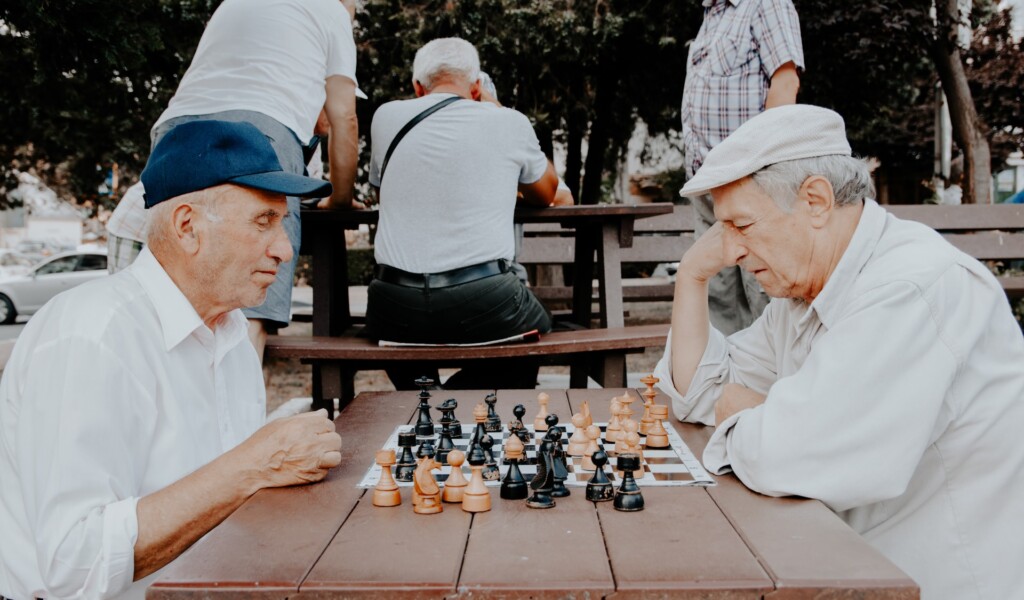
An estimated 6.2 million people over the age of 65 are living with Alzheimer’s disease. This debilitating condition has no cure and preventative methods aren’t very effective (though scientists are always researching new options).
Alzheimer’s is a type of dementia. It causes a decline in memory and cognitive abilities, as well as severe mood changes. Once Alzheimer’s starts, there’s no way to stop it.
It’s important to notice the early signs of Alzheimer’s disease so you can get help yourself or a loved one before it gets too advanced. But what are those early signs?
We’re here to talk about it. Read on to learn the first signs of Alzheimer’s so you can prepare yourself.
Memory Loss
Memory loss is the first and most common early sign of Alzheimer’s disease. It’s one that continues to get worse as the disease progresses.
It’s normal for all people to struggle to remember past events from time to time. Sleep deprivation, stress, and anxiety can cloud our memories, being aware of the correct signs will help.
People with Alzheimer’s can forget important life events and information that they learned recently. They may forget important people in their lives. If you or a loved one tends to write things down to remember them, it’s a sign that Alzheimer’s might be starting.
Trouble With Problem Solving
Again, a small amount of cognitive decline is normal as you age. You should make every effort to keep yourself sharp by doing puzzles, playing games, and continuing to learn new things.
Things like recipes or basic directions become impossible to track or follow. You may need to break instructions down into smaller pieces to complete them.
If you or a loved one is struggling to solve simple problems and puzzles, it’s a potential sign of Alzheimer’s.
Losing a Sense of Direction
If you’ve always had a strong sense of direction, but you’re suddenly forgetting where you are or where you’re going, it’s a sign that something is amiss with your memory.
It’s normal to feel unsure of where you’re going or where you are when you’re in a new place or trying a new route, but you should be able to get around your own city and places that you’ve already been without relying on a GPS.
Forgetting What You’re Doing
Do you find yourself forgetting what you’re doing while you’re actively doing it? Do you enter a room or open a new tab on your computer without knowing why?
These things happen to people without dementia or Alzheimer’s disease all the time, but if it’s getting more frequent, it might be time to talk to your doctor, especially if it’s getting in the way of your day-to-day life and activities.
More severe symptoms may include feeling intense confusion when you forget what you’re doing or forgetting what you were doing immediately beforehand.
Trouble Finding Words and Conversation Problems
Everyone experiences “tip of the tongue syndrome” from time to time. You’ll forget a word that you know the meaning of and that you use often only for it to return to you hours later. If it’s occasional, it’s nothing to worry about.
Some medications, such as topiramate, can cause this problem. If you’re taking a new medication and you start to experience it, talk to a doctor about changing your medication before you worry about Alzheimer’s.
If it’s happening often and the words that you’re forgetting are common words that you use daily, it’s time to consider that you might be in the early stages of Alzheimer’s disease.
Alzheimer’s can also impact your conversations in other ways. You may find yourself stopping mid-sentence or losing track of simple conversations. People with Alzheimer’s often repeat themselves.
Lapses in Judgment
Everyone makes bad decisions, but people in the early stages of Alzheimer’s are more likely to make mistakes due to lapses in judgment.
For example, internet scammers prey on people who are experiencing cognitive decline. They’re more likely to make bad choices with money (like giving it to someone running an online scam).
They may do dangerous things, like drive when they know that they’re too drowsy to do so.
Significant Mood or Personality Changes
One of the lesser-known symptoms of Alzheimer’s disease is significant mood swings and personality changes.
Alzheimer’s causes confusion. That confusion can lead to anger, intense anxiety, fear, and aggression. People with Alzheimer’s and dementia may lash out at loved ones.
Social Withdrawal
If you or a loved one is withdrawing from friends and family members, it may be a sign of Alzheimer’s disease or dementia.
This has many potential causes. First, people with Alzheimer’s may find their condition embarrassing. The idea of trying to engage with others in social situations is scary if you know that you’re struggling to follow conversations.
They may feel agitated and unwilling to see friends and family members who they’re upset with (even if that agitation is irrational).
Catch the Early Signs of Alzheimer’s Disease and Seek Help
If you start to notice several of the early signs of Alzheimer’s disease in yourself or a loved one, it’s time to seek out medical attention. A medical professional can assess the situation and determine whether or not Alzheimer’s is a potential cause.
Alzheimer’s can make living alone difficult. Hiring an in-home caregiver can help. At Just Like Family Home Care, we can help you find the perfect caregiver for your situation through our referral service.
Contact us to set up a meeting today.
Please note that the above content is for informational and educational purposes only, and does not substitute professional medical advice or consultations with healthcare professionals. If you experience any symptoms or have questions about a potential health issue, please contact your physician.
Caregiver Services and Long-Term Insurance: Everything You Need to Know
February 15, 2022

Over half of all seniors require long-term care services by the time they turn 65. While there are multiple options for long-term care, adjusting to the bills and expenses of long-term care can be overwhelming.
Many people are surprised to learn that health or medical insurance does not cover in home care, even if such services are recommended by a doctor. Keep reading to learn about long-term insurance and how we can help.
What Is Long-Term Care Insurance?
Long-term insurance is much different than traditional insurance. While traditional insurance covers medical expenses, long-term insurance does not.
Instead, long-term care insurance is beneficial to those who need home health care and home care.
Difference Between Home Care and Home Health Care
Unfortunately, the two terms are often used interchangeably. However, there are some key differences.
Home health care is the medical necessities needed for seniors, adults with chronic illnesses, or someone recovering from surgery. They will likely need regular physical therapy, RN, or other prescribed services.
On the other hand, home care supports the daily operations of a loved one. For example, a caregiver helps them dress, prepare breakfast, and offer companionship.
Caregiver Services Covered by Long-Term Insurance
As with any other insurance, long-term insurance has different premiums and coverage. While a lower premium may save you money at first, expenses can add up, emergencies can happen, and unforeseen care might be necessary later on.
It is important to note that individuals should apply for long-term insurance before reaching a certain age. Those who wait until they need it are less likely to qualify for long-term insurance.
While coverage differs with each premium, long-term insurance usually covers the following categories:
Live-In Care or End-Of-Life Care
Caregivers assist in daily living, as mentioned above. This is called ADL and includes support in toileting, hygiene, and increasing the comfort of a senior confined to their bed.
They assist the senior in shifting, lifting in and out of bed, and more.
Personal care is beneficial to seniors who are no longer mobile or require assistance in moving around.
Home Care or Companion Care
This branch of caregiving includes light housekeeping, meal preparation, transportation assistance, and more.
Seniors who are unable or unwilling to drive will benefit from this care, as well as those who have trouble standing for long periods of time.
While personal care is designed for those who need day-to-day help, homemaker caregivers can assist either once a week, several times a week, or on a daily basis. This will depend on the number of household chores that your loved one is no longer able to perform.
Home Health Care or Certified Nursing Assistants
As mentioned above, home health care assists in the senior’s health, while the other two caregiving services primarily deal with day-to-day living.
While regular prescribed appointments such as physical or occupational therapy, registered nurses, and other medical assistance are covered, the use of medications might require a different plan.
Who is eligible for Long-Term Care Insurance?
It is best to look for long-term insurance before it is necessary. People in their 50s, for instance, who plan ahead are more likely to be eligible for long-term insurance than those who are in their 70s.
Individuals who wait until they require continuous care or who have reached a certain age are less likely to qualify for long-term insurance. Often, insurance companies require medical underwriting to see if they qualify for insurance. When it is clear to the insurance company that the patient requires extensive care, they are reluctant to accept you as a client.
Seniors who prefer to age in the comfort of home may utilize long-term care benefits to pay for the in-home care services provided by professionals, such as a home health aide or nurse. Some insurers will also reimburse the costs associated with hiring an informal in-home caregiver.
Long-term insurance benefits are designed to give a senior with a disability or chronic condition the option to receive care at home instead of a nursing home or adult day care.
Cost of Long-Term Care Insurance
Medical care is expensive, regardless of what that care specifically involves. Bills add up, and before anyone realizes it, the family is in a tremendous amount of debt.
While insurance is not cheap either, it can help alleviate some costs. The rates for long-term care insurance depend on several factors, such as your age, gender, and the premium you choose. As your age increases, so will your premium. This is mainly due to the fact that with age comes more health problems.
Long-term care insurance might be more expensive for women, since they statistically tend to live longer. Additionally, if you are single, the price might be higher.
Altogether, the average cost of long-term care insurance is around $3,500 a year for a couple in their 50s, according to a 2020 price index survey of leading insurers conducted by the American Association for Long-Term Care Insurance (AALTCI). However, this price is set to increase each year due to inflation and the age of the holder.
Just Like Family strive to refer the highest quality caregivers and nurses for a very competitive price. Rates are based on the type of services you require, the hours needed, and the rate requested by the caregiver who is providing the services to you.
Just Like Family is here to help
Most long-term care insurance will cover the types of services rendered by registered caregiver. Each company policy varies and Just Like Family staff can assist our clients in navigating the specifics of their particular policy. We can provide any documentation needed to start your policy benefits and to keep them going. Contact us today to learn more.
5 Reasons to Consider At-Home Care in SWFL
January 14, 2022
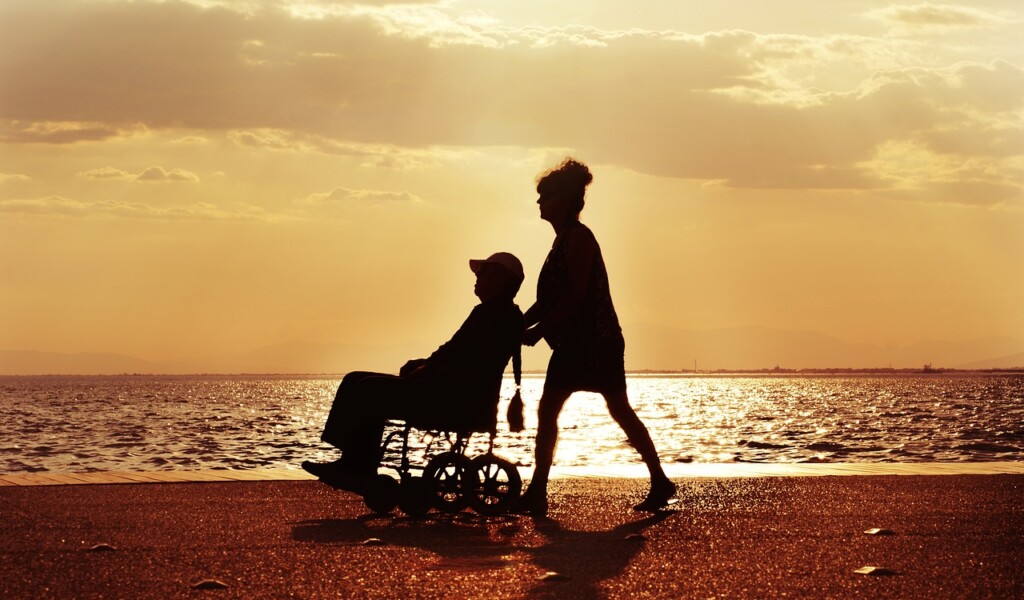
More than 65 million Americans juggle the daily demands of work, home, children and caring for someone they love. Managing a busy life and taking on the role of deciding wellness decisions for a loved one can be overwhelming. Some people try to work out care schedules with friends and family members. Others may believe that living in a facility is best for their loved one. Home care is here to help.
For many families, home health care is a beneficial choice—a safe and affordable solution that supports the family, while allowing your loved ones to stay in the comfort of their own homes and communities. There are a lot of benefits of home care that you should consider before taking the next step. Here are just a few reasons why you may want to consider a nurse for home care.
Find a Just Like Family Homecare service that is right for you or your family.
1. Simple Transitions
Adjusting to your new care duties can be overwhelming. The new routine changes you’re going through can be hard to deal with, but you aren’t the only one going through a drastic change.
Your loved one has been living independently for decades, and now they have to rely on someone else for help. That can be a lot to deal with, and some seniors don’t cope well with such a drastic change.
Getting nursing or caregiving help at home, means that your loved one can stay in an environment they’re comfortable with and still get the help they need. Home health care services provide meaningful, one-on-one personal and skilled care that builds strong bonds between professionals and their clients.
2. Peace of Mind
Live-in Home Health Aides or Certified Nurse Assistants are an excellent solution for someone who lives alone and would like the reassurance of someone always available in case of an emergency. Live-in caregivers will always be close enough to assist the client if there is an emergency. This service also provides out of town family members with the peace of mind that comes from knowing that your loved one is never alone.
If you or your loved one moved into the family home, we know how stressful adjusting can be. For many families, home health care can be just the support they need to help manage caregiving responsibilities, while avoiding caregiver burnout. When you get a home health nurse or caregiver, you don’t have to worry about the painful effects of separation. Everyone can stay together in the family home, but now you have plenty of help when it comes to your caregiving duties.
3. Setting a Daily Routine
Life, especially but not exclusively during the course of the pandemic, has been full of uncertainty. For seniors who are feeling less in control of certain areas of life, such as losing cognitive or physical functioning, focusing on exactly what can be controlled is empowering. Having a daily routine is important for seniors. It helps them feel more in control and safe & secure, reduces stress & anxiety, and improves sleep.
Just Like Family referred live-in care providers, home health aid, certified nurses, and companions create personalized care plans and schedules in order to make each day the best it can be for older adults and the ones who love them.
4. Medication & Nutrition Management
Managing multiple medical prescriptions can be overwhelming and time consuming. Nurses and caregiving assistants can ensure the right medications are being taken at the right times to control health conditions and prevent harmful drug interactions.
Health care professionals can also help manage nutrition. Aging, bed rest, illness, and injury can all contribute to the loss of lean body mass. Home care may include nutritional counseling, grocery shopping, and home-cooked meals to protect your loved ones against malnutrition.
5. Customizable Care
When your loved ones are in care facilities, it can be difficult to structure a care plan that works just for them. They may have to follow certain schedules or adhere to routines that make it easier for staff to adequately manage everyone in their care but don’t necessarily give them the individual help they need.
The reason why so many seniors tend to do better at home instead of a facility may have to do with the individual level of care they get. According to the Cleveland Clinical Journal a person who is seen by a clinician in the comfort of their own home, are more confident that the health care team places their needs first.
One-on-one focus and support means that your loved one will receive the care that’s best for their needs. Neither of you will have to worry about the quality of care because you’ll know it’s just what they need.
Get the Right Help
Making care decisions for your loved one is an important task. When looking into different health services, make a list with concerns and goals towards a better life for you or your loved one. The answers you receive will reassure you if you’re working with the right team.
We know how to help you find the right level of care for your loved one. Whether you need a skilled nurse or a little help around the house, we can connect you to what you need. Contact us today so we can get you the right help for you or your loved one.
7 Signs of Senior Anxiety and Restorative Strategies
June 3, 2021

According to the CDC, about 20 percent of those older than 55 experience some type of mental health issue. These include anxiety, cognitive impairment, depression, and other mood disorders.
Recognizing these signs is important when you are trying to help an older loved one.
Do you want to learn more about senior anxiety, anxiety symptoms and restorative practices, and more? Keep reading these 7 signs of senior anxiety.
1. Confusion or Forgetfulness
One of the most common symptoms for seniors and anxiety is confusion or forgetfulness. Whether they have a hard time concentrating or if they often get confused about simple tasks, this may be a symptom of their anxiety.
2. Irritability
Another common symptom of anxiety is irritability. Because anxiety often comes with high arousal and extreme worrying, it can also make seniors feel irritable and upset. This is especially true when they are in the midst of anxiety attacks.
3. Avoidance of Anxiety Triggers
One way you can identify anxiety in older adults is if they avoid people, places, or things that trigger their anxiety. For example, older adults may not want to go to the doctor if they get anxious in hospitals or when receiving treatment. They may avoid family members that make them feel anxious or those who are trying to force them into decisions.
4. Weight Loss
If you notice that your older friend or relative has been losing weight, this is often a symptom of anxiety. Anxiety can cause changes in their appetite or eating habits, which is not good for their health. If you notice sudden or extreme weight loss in older adults, it may be time to get professional help.
5. Problems Sleeping
Many adults who experience anxiety also have problems sleeping. This doesn’t only include problems falling asleep, but it can also include sleeping too much or not enough. Insomnia is a common symptom of anxiety and can lead to restless sleep and even difficulty staying or falling asleep.
6. Obsessive Thoughts and Compulsive Behavior
Obsessive thoughts and other compulsive behavior may be a symptom of anxiety as well. While not all older adults who experience anxiety also have OCD, it is common for them to repeatedly ask the same questions, touch things, and even perform rituals.
7. Withdrawal and Isolation
Finally, the last common symptom of anxiety in seniors is withdrawal and isolation. This happens often with social withdrawal.
If older adults are nervous, they may isolate themselves at events or avoid talking to others. Their anxiety makes them withdraw from others, even their loved ones.
Triggers for Anxiety in Seniors
There are many common triggers for seniors that may cause or worsen their symptoms of anxiety.
One of the most common triggers is the loss of their independence. When seniors are used to living alone and meeting all of their own needs, it can be difficult for them to accept outside help from others. When they lose independence, it is a common trigger of anxiety.
Other causes of anxiety include death, grief, and loss. These are common in older adults as they near the end of their life. When they have to start doing end-of-life planning, it can make them anxious for the future and the unknown.
It is also difficult for them to see close friends and loved ones pass as well.
Many older people also have changes in their sensory abilities. Diminishing vision, taste, and even smell may cause anxiety. When they can no longer do the things they used to be able to do, it can put a lot of stress on older citizens.
The same is true for those seniors who experience chronic pain, immobility, and other health problems. Seeing your own health deteriorate is something that can make you feel stressed and unable to cope.
Finally, another common trigger of anxiety is isolation. This is something that was a huge problem throughout the COVID-19 pandemic. Because seniors were trapped at home with no one able to visit, it increased struggles with mental health.
This was true for everyone coping with the pandemic, but it was very common with older adults.
Treatments for Anxiety
There are many ways you can help ease the symptoms of anxiety in older adults. One of the best ways is to prevent anxiety. This is much easier to do if you know what triggers anxious feelings in your loved one.
By preventing these triggers, you can curb the anxious feelings that accompany them.
If you have an older loved one who is currently struggling with anxiety, there are other ways you can help. First, you want to be calm and reassuring as you help them. You can acknowledge their worries and suggest solutions that might help them overcome the issues.
For example, if your loved one is worried about finances, you can meet with a professional that can help them plan out their expenses for their remaining years.
Another thing you can do is help them adopt techniques to manage their stress. There are many things that can help lessen the symptoms of anxiety in seniors. This includes mediation, deep breathing, and prayer for those who are more religious.
Finally, you can help find them professional care. Whether this is a live-in nurse or companion care, older adults can benefit from home care.
While these treatments may not completely get rid of their anxiety and other symptoms, they can help them learn to manage it without too much stress.
Find Professional Care and Assistance With Senior Anxiety Today!
If you have noticed these signs of senior anxiety in an older friend or loved one, you can find help! By recognizing the signs and finding ways to treat them, you can help your loved ones improve their mental health.
If you are looking for professional care and assistance, Just Like Family Homecare can help! We are a referral service that can help you find the best caregivers for your loved ones. Contact our team today to learn more about our services or to set up a meeting with our staff.
How to prevent seniors from falling
August 8, 2018
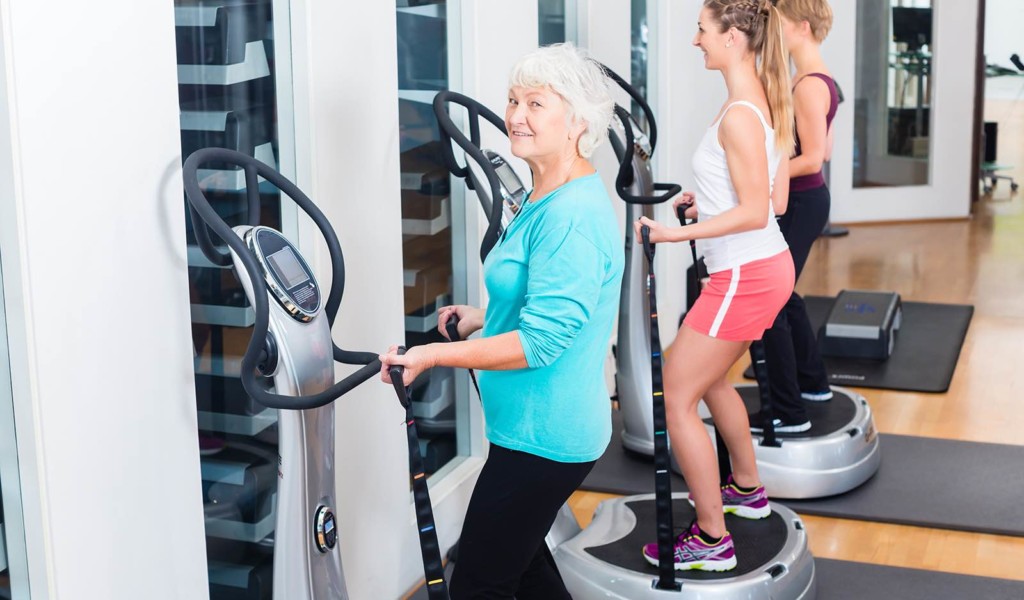
As a home health care company with over 12 years of experience in Naples and Southwest Florida, we have seen many incidents were seniors fall due to dangerous conditions or lack of balance. It is one of the biggest threats to senior’s health. In old age, a seniors ability to keep balanced decreases.
To avoid those incidents we have some tips to improve balance:
Vibration platforms
Vibration platforms are exercise machines with a vibrating plate that the user stands, sits, or lies on while performing specific movements. Due to the consistent vibration, the body naturally tries to stay in balance which causes multiple muscle contractions especially in the core and along the vertebral column. Most of those machines have stabilizing bars which allow seniors to train their balance while holding on to the machine. This secure position reduces the chance of falling off the platform. This exercising method is very popular among seniors due to the low impact on joints, core strengthening and the improvement in balance which helps reduce the risk of falling and Osteoporosis. It is highly recommended to have a certified trainer showcase the different exercises and have a physician’s approval to do such a workout.
Yoga
This training method combines different postures and movements in order to keep the body in balance. Similar to the previous method, Yoga training movements can have a very low impact on joints that are preferred by seniors. Depending on the range of movement, seniors will be guided through different poses that combine stretching and static strengthening exercises with the goal of increased balance and core strength. Like with any other physical training, it is recommended to consult a physician and have a certified trainer/Yogi guide one through a routine.
Eliminate risks in your household
Many risks of falling can be avoided by eliminating obstacles in the home. Make sure that living areas are not cluttered with objects that might cause seniors to trip or stumble.
Clean and clear paths to any part of a living area are important. Make sure that lighting is appropriate in all rooms and that the switches are easy to reach and use backlights so they can easily be seen. Slippery surfaces like in bathtubs should have non-slip stickers or a matt if possible. Wearing non-skid, rubber-soled, low-heeled shoes, or lace-up shoes with non-skid soles can also tremendously decrease the chance of falling. Utilizing assistive devices like a cane or walker and having them on hand is definitely helpful as well.
Consistent check-ups
Make sure to visit a physician regularly to check for visual, hearing and balance impairment. Any decrease in audiovisual senses can increase the threat of falling tremendously. Making sure that seniors have the right glasses or hearing aid is essential.
Hire a care provider to assist with daily activities
Having someone to look out for seniors can greatly reduce the risk of injury due to falling. Our licensed, knowledgeable caregivers will help make sure seniors are safe in their own home and around town. Caregivers can help ease the stress of day to day activities like grocery shopping, bathing, housekeeping and meal preparation that seniors may find difficult if they have balance or stability issues.
Just Like Family is a home health care provider in Naples always focused on the well-being of clients, trying to help them stay independent in their own home.
Disclaimer: The blog entry above has been created utilizing different online sources. The blog entry has not been verified by a doctor. Please note that conducting the above-mentioned activities is at the individual’s own risk and responsibility. Please always consult a doctor before exercising or doing any physical activity, especially to avoid injuries or harm due to unknown preconditions. Just Like Family is not responsible for any injuries while conducting the above activities.
Well-being improvement activities for elderly
July 3, 2018
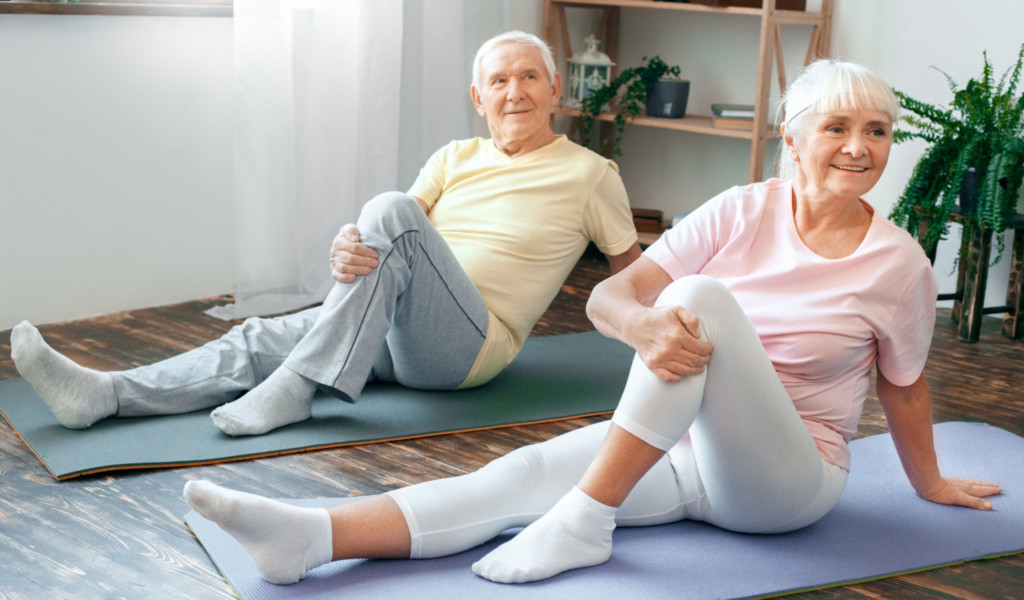
Yoga:
Yoga is an activity with low impact on the joints which increases flexibility, stability, balance and core strength for people of all ages. For elderly people who often have difficulties maintaining balance, this is especially important as it can help prevent falls or other accidents.
Here is an overview of what regular yoga practice (2-3 times/week) can potentially do for senior citizens:
- Increase joint strength and mobility
- Improve stability and balance
- Reduce chances of falling down
- Improve the cardiovascular system
- Improve sleep
- Lower cholesterol as well as blood pressure
- Improve well-being and mood
- Aide recovery after surgery
- Possibly reduction of depression and anxiety
Yoga can be practiced by everyone and depending on your ability you will start accordingly with certain exercises. As with any new exercise routine, it is essential to train in a facility with certified instructors and make sure to consult with your doctor before starting.
Walking:
A simple, cheap and effective activity which can be conducted anywhere. It can help to maintain mobility and independence for senior citizens. Non-active or sedentary lifestyle can cause muscle loss and can lower the aerobic capacity. Mark Fenton, editor of the Boston-based Walking Magazine mentioned on “American Trails” that, “The elderly have some special physical concerns that can be helped with regular exercise like walking.” He also explains that regular walking/exercising can improve mental health through a higher sense of self-esteem and better sense of purpose. Other health benefits can include:
- Decreased chance of dying from heart disease
- Decreased risk of developing colon cancer
- Cardiovascular improvement
- Decreased chance of developing diabetes
- Lower risk of developing hypertension
- Increased flexibility, balance and muscle strength, all of which reduce the risk of falls
- Reducing risk of obesity
Meditation:
Mindfulness including meditation has become a tool many people use to improve their mental health and brain capacity. Seniors, specifically, have shown improvement. Apps like Calm.com can help to with an easy introduction to this ancient practice. Benefits of meditation can include:
- Helps memory
- Activates the endorphin-producing areas of the brain
- Sharpens and focuses the mind
- Reduces stress
Just Like Family is a home health care provider in Naples always focused on the well-being of clients, trying to help them stay independent in their own home. Our caregivers can assist in conducting activities like walking, and yoga to help you improve your health. Please note that any activities you or your loved ones participate in should only be started after consulting a doctor.
Disclaimer: The blog entry above has been created utilizing different online sources. The blog entry has not been verified by a doctor. Please note that conducting the above-mentioned activities is at the individual’s own risk and responsibility. Please always consult a doctor before exercising or doing any physical activity, especially to avoid injuries or harm due to unknown preconditions. Just Like Family is not responsible for any injuries while conducting the above activities.
Home Health Care, Assisted Living Facility Comparison
April 30, 2018
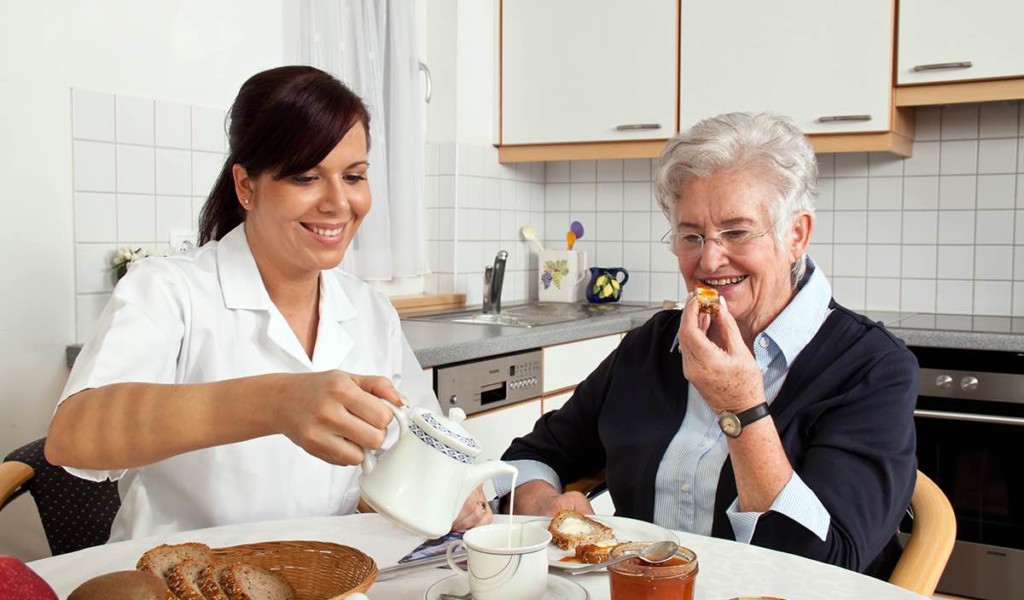
Less Stress
The older we get, generally less flexible we are. Elderly can have a hard time to adjust to a new environment, new routines and interacting with strangers. Dealing with multiple new staff members in the facility can be uncomfortable. Allowing seniors to live in their home and stay in a comfortable environment offers a much easier way to transition them to an assisted living lifestyle.
Lower Costs
Depending on the needs of the individual and the facility, living full time in an assisted living facility can be more expensive than having a home care provider visit. Paired with the comfort of living at home, a home care provider can be a much better option.
Safety
In their own home, elderly are used to their surroundings and have little trouble finding their way around. In cases where seniors have the early stages of dementia, a new environment can pose unique risks such as tripping, falling, panic or confusion.
Higher Self Esteem
Still being able to live in their own house and maintain a certain independence gives elderly people a feeling of dignity and self-esteem without becoming a burden for their kids.
Just Like Family Home Care
To discuss you or your loved one’s options, please don’t hesitate to call Just Like Family Home Care, offering deeply caring service to Collier and Lee County, Florida.
We help maintain our client’s lifestyle in the comfort of their home, hospital or facility. Our goal is to ensure quality and complete satisfaction for every person we are entrusted to serve.

